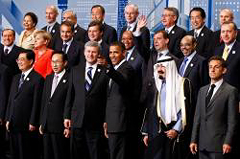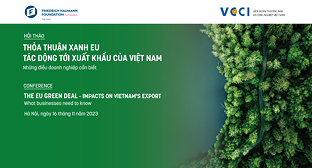WTO alarmed over growing G-20 trade protectionism
07/01/2014 12:00

The World Trade Organization is pushing anew for free trade as it sounded the alarm over the rise in economic restrictions or trade protectionism imposed by the Group of 20 (G-20) despite the recent adoption of the Bali package of trade facilitation measures, a WTO report sent to select entities said.
G-20 is the forum for international economic cooperation and decision-making, with members from 19 countries plus the European Union. Its members account for 85 percent of the world economy, 76 percent of global trade and two-thirds of the world’s population.
Members are Argentina, Australia, Brazil, Canada, China, France, Germany, Indonesia, India, Italy, Japan, South Korea, Mexico, Russia, Saudi Arabia, South Africa, Turkey, United Kingdom, United States and the European Union.
The latest WTO report on G-20 trade measures noted that from mid-May to mid-November 2013, most G-20 members put in place new trade restrictions or measures with the potential to limit trade flows.
Trade protectionism is a system that limits entry of foreign goods to any country by means of taxes, duties, quotas and tariffs. It is a full contrast of free trade where goods from other countries enter any country without or very limited duties and taxes.
“A total of 116 new trade restrictive measures were identified since the last WTO report, up from 109 measures recorded for the previous seven-month period (mid-October 2012 to mid-May 2013),” the WTO report said.
These initiatives were mainly new trade remedy actions, including anti-dumping investigations, tariff increases and more stringent customs procedures.
Additionally, fewer liberalizing or facilitating actions, such as tariff reductions and termination of trade remedy actions, were shown to have been taken from mid-May to mid-November 2013 than in the past.
The report reiterated the importance of removing trade barriers, noting the link between the rise in protectionist actions and the slowdown in world economic activity.
The current global economic stagnation, it said, has not only affected most developed economies but also major emerging markets.
Trade growth in 2013 is expected to register at 2.5 percent, only a slight increase over 2012.
Source: tribune.net.ph
Các tin khác
- Vietnam and Southeast Asian Solar Firms Face US Anti-Dumping, Anti-Subsidy Probe (03/05/2024)
- Infrastructure development creates momentum for exports to "neighboring" markets (03/05/2024)
- Seaports increase services to attract goods (03/05/2024)
- Chinese EV makers risk tougher duties over failure to cooperate with EU probe (03/05/2024)
- RoK burgeoning market for Vietnam’s agro-forestry-fisheries exports (03/05/2024)
 Home
Home
 About Us
About Us




















